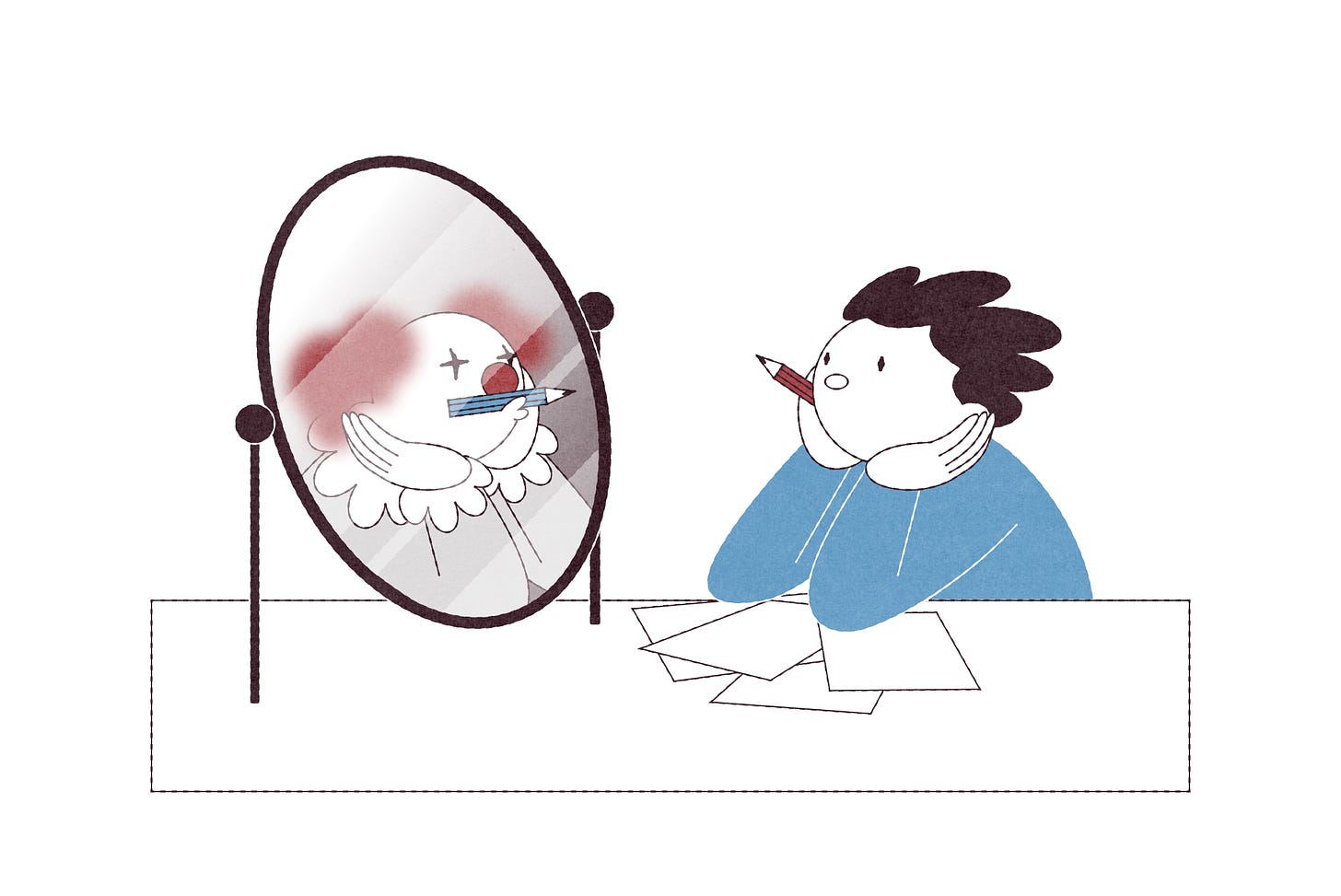How to Write a Comedic Personal Essay
Lesson 2 of Comedy for All: How to Make Your Writing Funny

This lesson is part of The Comedy Writing Workshop with Alex Baia!
Last lesson, your writing challenge was to draft a short comedic list of around 300 - 600 words. This could have been a funny list of any kind, and for those of you who wanted a more specific challenge, I suggested that you write a Frequently Asked Questions (FAQ) list.
How’d that go? I’m hoping it was fun, easy, and breezy.
But if you ran into friction, I’d venture there’s a decent chance that your issues stemmed from one of the following three problems:
A. Being too cautious in your first draft
This happens when you are too up in your judgmental “editor” brain and not enough in your free-spirited “clown brain.”
There’s a subtle difference between the following two thoughts:
“Is idea X funny? Hmm, I don’t know. How would other people react to it? Is it smart? Ugh. I don’t know.”
“Hey, idea X is kind of funny. Let’s see where it goes…”
You want to vibe more with that second thought than the first one, especially when you’re in first draft mode. When you’re editing and paring down, you can be more discerning.
B. Not writing enough jokes
We talked about the value of “over generating,” or writing more than you need. The beauty of overwriting is multifold, but the clearest most direct value is that you’re more likely to find jokes, lines, and escalation paths you love this way.
Also, as you can probably now see: over-generation and clown brain go hand-in-hand. It’s easier to be a clown when you know, in the back of your head, that “these are just fun ideas, none of this has to be final right now.”
C. Infidelity to the main premise (the main joke idea)
Infidelity problems are extremely common as you’re getting your humor writing sea legs. In fact, they remain fairly common even after you have your sea legs.
And what I mean by that is this: When you were writing your funny list piece, there should be one core funny idea. That’s the premise, or the main joke that’s conveyed by the list title.
When you deviate from the main comedic idea, it makes the piece feel confusing. To your reader, it feels like the piece is jumbled with “too much stuff.” In the biz, we call this “Going off premise” or “Infidelity to your premise” or “sleeping around on your premise.” (Actually, no one calls it the last one.)
The antidote to premise infidelity is awareness and feedback. When you edit, you can pare back to only the jokes that serve the core idea.
(If you want to learn about how to fully debug your humor piece, grab my free cheat sheet here.)
Okay, now tell me in the comments section: What was your experience with the Lesson 1 list exercise? How’d it go?
And now let’s turn to this lesson’s topic: the funny personal essay, or first-person humor piece.
A personal essay or funny first-person piece is heavily driven by voice and point-of-view. So that’s where we’ll start: with the fundamentals of comedic voice.



